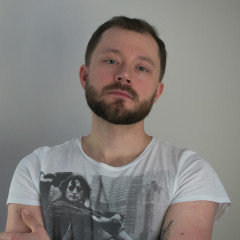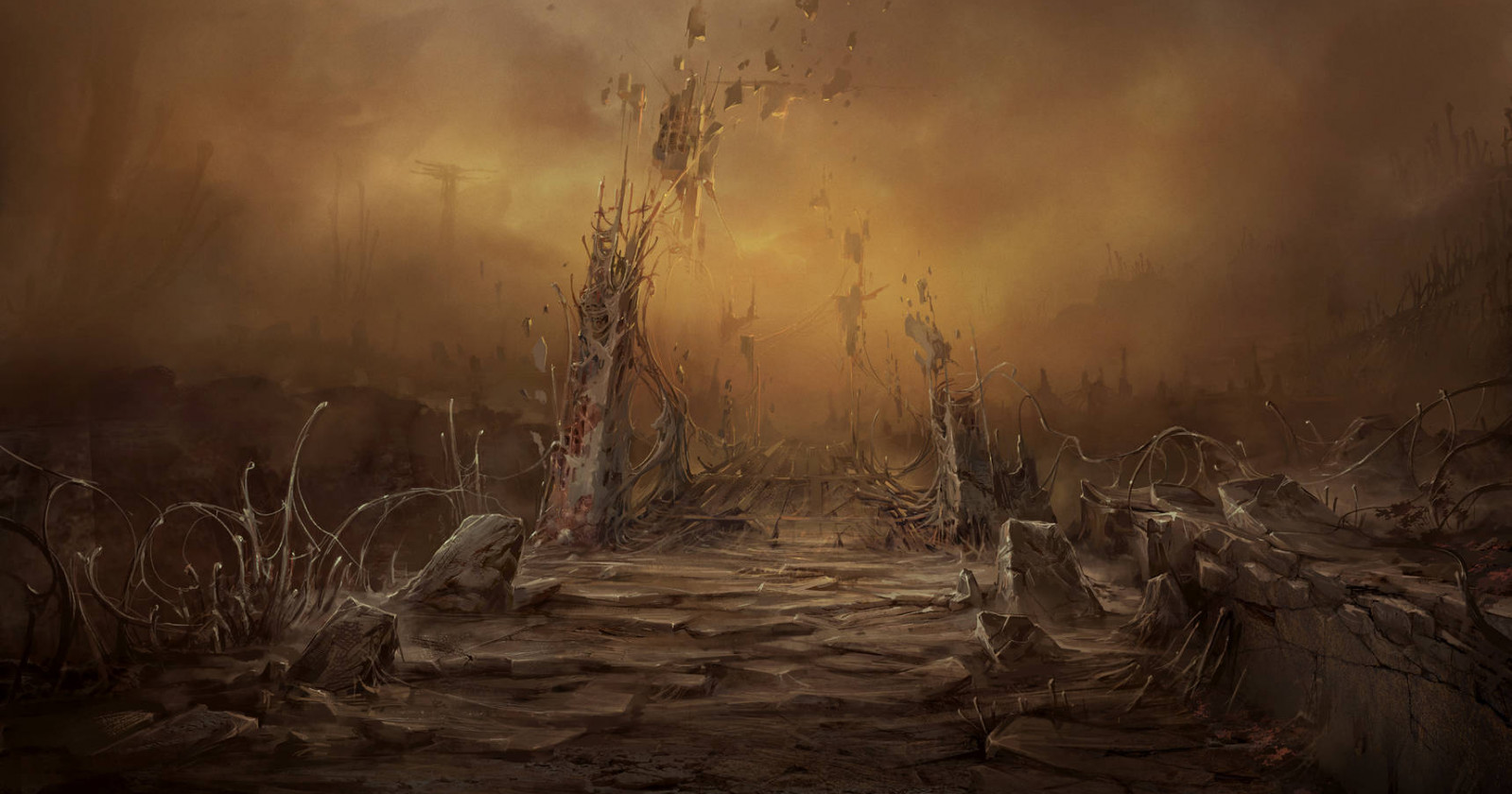
The Darker Half. In Conversation with the Makers of The Medium25.01.2021
A rainy day in Krakow’s Matejko Square, the basement of a funeral parlor... While the place might seem somewhat familiar, it’s a rather unusual setting for a game intended for a mass international audience. The Medium, the latest from the Krakow-based studio Bloober Team, not only takes us back to 1990s Krakow, but teleports us to a parallel demonic realm, ruled by nightmarish creatures straight from the mind of visionary artist Zdzisław Beksiński. Thanks to a novel dual-reality gameplay mechanic, the players will be able to explore the physical world and the spirit world simultaneously.
We spoke with the game’s lead designer, Wojciech Piejko, and producer Jacek Zięba.
Work on the The Medium began well over a couple years ago. Since then, the initial concept has undergone a variety of changes. How did the title end up becoming what it is today?
Jacek Zięba: I think the game went through as many as three iterations, maybe more. But the both of us came aboard as the game was taking its final shape. In the very beginning, The Medium was envisioned as a 2D platformer, you can still find old reporting online describing it as such. Then, it turned into a 3D game, with comic book-like visuals and cel shading, but, as far as I’m aware, that concept was ultimately undone by issues related to its free-look camera system (a virtual camera system allowing the player to freely control the point of view during gameplay—ed. note).
Wojciech Piejko: As is often the case in VR games, the free-look system prompted a sort of motion sickness—when trying to control actions in two worlds simultaneously, some of the players felt nauseous.
JZ: The game’s longer development timeframe, however, gave us access to better and newer technology. We spent quite some time looking for the perfect engine that we could adapt and develop to suit our needs, and finally ended up going with Unreal (a popular game engine developed by Epic Games—ed. note). Bloober Team also grew in the meantime, and we finally decided it was time to move The Medium into production full-time. The only question was which generation of consoles we ought to aim for and, after some consideration, we opted for next-gen devices. Not long afterward, Wojtek and I took over as project leads and wiped the slate clean, except for some choice technological solutions, to rebuild everything from the ground up. The only elements left over from previous iterations of the concept were the spirit world, inspired by the work of Zdzisław Beksiński, and the dual-reality gameplay mechanic.
WP: Plus some premises carried over from earlier scripts. The original idea for the game, called The Medium from the very beginning, was first floated years ago by our boss, Piotr Babieno, and his wife Marlena. When Jacek and I took the project over, we reshuffled some things. We rewrote the story and introduced a fixed camera. But the opening and finale of the game were left untouched.
JZ: That’s right, but everything else—the narrative structure, the script, or even new gameplays ideas all came from us. we really were working from the ground up, albeit on something resembling a foundation.
How did Bloober end up specializing in the horror genre? Your prior efforts include an entry in the Blair Witch franchise and Observer, starring Rutger Hauer, which brought you the Polityka Passport award. Was your decision to move forward with The Medium, to put it bluntly, driven by marketing considerations or did it come straight from the heart, like your other titles?
JZ: Already after our infamous Basement Crawl (the game was criticized as a mere clone of the popular Bomberman—ed. note) it was rather obvious that we were drawn to horror and after welcoming a part of the team from Reality Pump (another Krakow-based game developer, responsible for titles such as Polanie and Two Worlds—ed. note), we decided that we had a strong enough team to start aiming higher. Hence the idea for Layers of Fear (Bloober’s first major title, released in 2016–ed. note) and taking the studio in a new direction.
WP: I came aboard when the studio was putting its final touches on Layers of Fear, that’s sort of what drew me to Bloober in the first place. I have loved the horror genre since childhood, and in whatever form, be it books, comic books, films, and so on. So when a friend asked me whether I’d like to work on a cyberpunk-inflected horror game—back then we had little idea of what Observer would ultimately look like—I said sure. Then I noticed that everyone at Bloober liked what they accomplished with Layers of Fear and that everyone wanted to go further down that route.
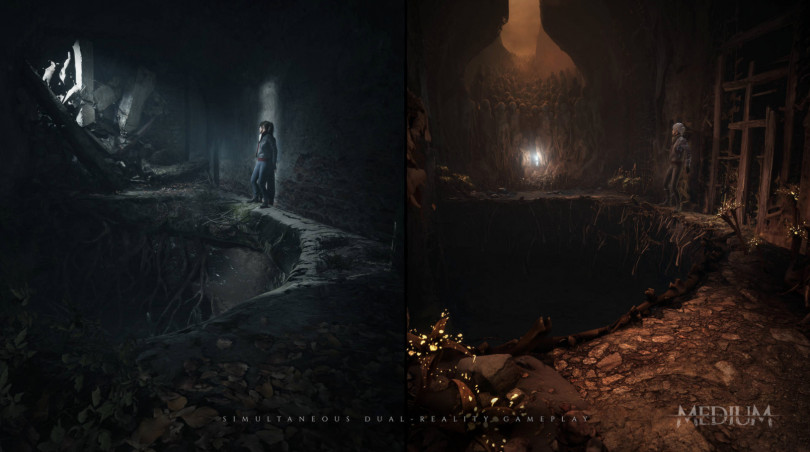
JZ: We were already toying with the idea of going all in on the horror genre back when we were doing conceptual work on Layers and its later success only confirmed to us that it was the right choice, both marketing- and saleswise. It was a turning point, I’d go so far as to say that this was the point Bloober finally found its true self.
WP: Each of our prior titles opened doors for us and we expect that The Medium will do the same.
Much of the online reporting on The Medium understandably emphasizes the innovative dual-reality gameplay and the different perspectives of the two worlds. But it seems to me that Bloober has been flirting with similar tropes since the very beginning. In Blair Witch, you had to look at the camera to see what the naked eye could not, while in Layers of Fear, the truth about the protagonist had to be gleaned from his surroundings. In your original interpretation, real horror lies not as much in specific “external” mysteries or circumstances as in the puzzle hidden inside the main character.
WP: Yeah, we’re really fond of psychological horror. Slasher movies and more straightforward entertainment are fun too and I love them, but we prefer dealing with different themes. I love stories like Midsommar, which, at its core, is an interrogation of a relationship between a man and a woman. In my view, the best horrors, regardless of the medium, provide a venue in which we can face our own demons and process our personal dramas. Each of our games has a different theme. At first glance, Layers of Fear is the story about a painter in a haunted house, but beneath that veneer lies a story about choosing work over family. Observer explores the limits of humanity, while Blair Witch is a story about PTSD. We’re going the same way with The Medium.
Thinking about the game, it’s rather hard to imagine what the split-screen feature will look like. We’ll soon have the opportunity to take it for a spin, but tell me how you’d sell it to someone who’s having difficulty grasping the mechanic of moving two separate characters on one screen split in half.
JZ: To date, no game has even given players the ability to move in two worlds at once. We wanted to do something different, and it would prove quite the obstacle, as we had no concrete reference point to draw on. In this case, much of what we knew about game development simply did not apply. To put it short, a third of the game is spent in the physical world, another third in the spirit world, and the remainder the players will spend navigating the two simultaneously. Because our protagonist is capable of seeing the two worlds at once, it became our way of giving the players her POV. The avatars in both realms will move as one, in what we came to see as synchronic gameplay. The mechanic will have its own difficulties, of course, as the avatar in one world will be limited by the physics of the other realms.
WP: Imagine that you’re standing in front of a door—open in one world, but closed in another. So finding a way to open them become a basic riddle. Also, the players will have the opportunity to cleave the avatar from their characters and play as the spirit alone for some time. Plus, in the spirit realm, our character will command certain powers, including the ability to harvest energy that could be used to drive away monsters, for example, or to charge electrical devices, which, in turn, produces consequences in the physical world. Everything is designed to mesh throughout the game, forcing the players to try and work both realms to proceed in the story.
JZ: The parallel realm contains scores of information for players to find and use. But rather than force switching between the two planes, we instead opted for a mechanic that allows the simultaneous view of both, offering a wholly novel approach to exploration and gameplay.
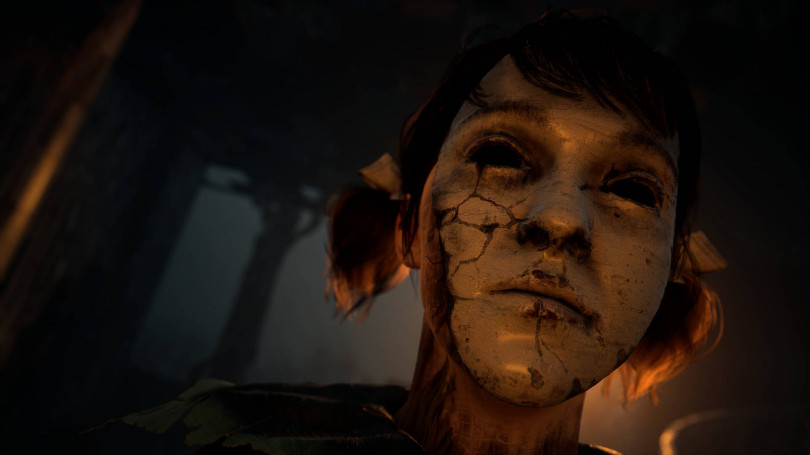
At the risk of oversimplifying what you just said, we could take all this to mean that the game will emphasize adventure rather than action?
WP: Very much so. The Medium is definitely the most complex title we’ve ever produced, at least in gameplay terms, but I wouldn’t call it an action game.
JZ: If we were pressed to come up with a precise designation for The Medium, I’d go with narrative adventure horror game. We set out to tell a specific story, drawing on tropes and atmosphere typical for the horror genre, but using tools typical of adventure games. We wanted something of an old-school throwback, but augmented with modern solutions.
WP: I’d go with “old, but with a modern feel.”
1990s Poland will be a rather exotic setting for much of your prospective player base. After all, the game draws on or refers to not only Beksiński, Silent Hill or Dark Seed, but also the specific reality of Krakow from not that long ago. Was setting The Medium in post-transformation Poland a purely aesthetic decision or is it echoed in the storyline, too?
JZ: I believe our game reflects two separate Polands—on the one hand is the protagonist’s contemporary, end-of-the-century reality, and on the other we have the long-abandoned Niwa resort, patterned after the real-life Cracovia Hotel, embodying the clash of the present and the brutalist past of Communist Poland. Alongside the visuals, Marianna herself provides commentary on both past events and her current reality, because, as we’ve already mentioned, the game is all about different perspectives.
WP: Living in post-Communist times necessarily involves some delving into what happened under the former regime. It was nice for us to be able to show a little Polish history, and potentially introduce even more people to the work of Zdzisław Beksiński. At the risk of spoiling some of the fun, the city itself doesn’t play that significant a role in the game, because the story quickly moves away from downtown Krakow in order to better portray the sense of isolation. But the city is still a secondary protagonist, so to speak, and it was fun recreating locations we all know and understand. Sure, we could have easily set the story in Los Angeles but that would be faking it. And using Poland as a backdrop is not the dead end it might seem. When Asian journalists first saw Observer, they were delighted by how exotic our tenements looked.
JZ: While the game is not about either Communism or post-Communism, we wanted the visuals to tell their own story, rather than serve as purely decorative backdrop.
Like your previous effort, Observer, which featured a number of interesting actors, The Medium also includes big-league talent, like Troy Baker, starring alongside Weronika Rosati and Marcin Dorociński.
JZ: That’s right, and during motion capture sessions we worked with them to narrow down their characters’ baseline personalities, define their behaviors in certain situations, laying down a solid narrative foundation. Then the pandemic happened, thwarting our plans a little, and forcing us to use other actors for the motion capture, making the whole thing a team effort. But given the Polish setting, we were determined to hire local acting talent we held in high esteem, a decision we made early on in pre-production.
WP: The motion capture sessions were a first for both Weronika and Marcin, and that’s always an unforgettable experience. Back on Observer, Arek Jakubik was constantly sending pictures to his son, asking whether he could join him on set. This is really nice, both for the studio and the actors.
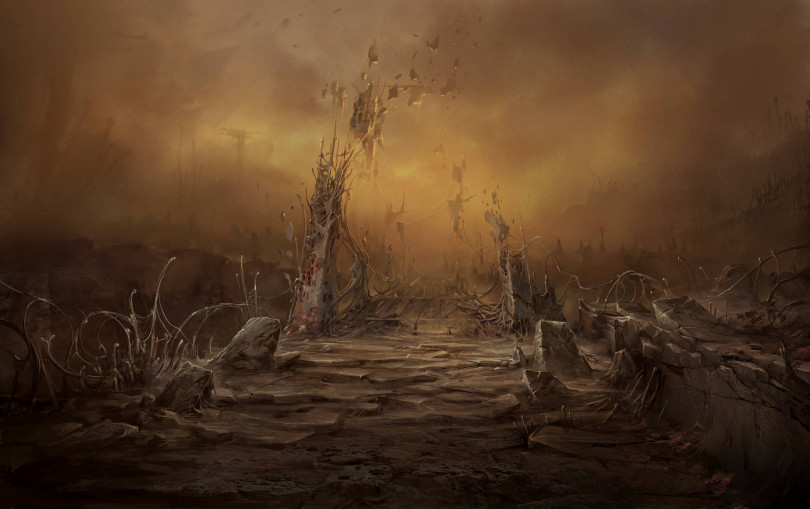
The Medium is Bloober Team’s biggest release yet, plus it’s going to be one of the biggest titles yet for the new Xbox, making you something of a Microsoft exclusive. Has this position brought on additional pressure?
WP: Let’s be frank, we’re not an AAA (an informal classification denoting big-budget titles from major studios—ed. note) game development studio, at least not yet, and that means we’re not fit to compete against titles like The Last of Us Part II, which are usually polished down to the smallest detail on release day.
Neither Hellblade nor A Plague Tale were AAA titles, but both were excellent games.
WP: And that’s the tier we’re aiming for.
JZ: I wouldn’t want to say that we’re already at that level, but it’s something we’re definitely working toward. And as far as the Xbox thing, well, it’s something we planned on. Because of the pandemic, much of the industry shifted toward remote work, forcing a number of major studios to reschedule their biggest upcoming releases, like Halo: Infinite, and that left room for us. But it’s a blessing, no doubt about that, because it will help The Medium reach an even broader audience, particularly players interested in trying something new. But we’re aware that it won’t be everyone’s cup of tea, after all it’s a rather artsy-fartsy title.
WP: We’re steeling ourselves for 2/10 scores from players disappointed that we haven’t given them a new Resident Evil [laughs].
see also
- Discover Your Talent. The 8th Edition of Papaya Young Directors Contest Just Round The Corner
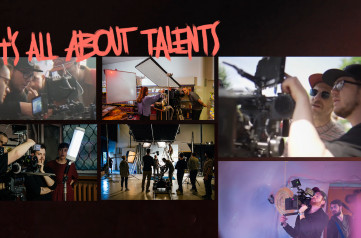 Papaya Young Directors
Papaya Young DirectorsNews
Discover Your Talent. The 8th Edition of Papaya Young Directors Contest Just Round The Corner
- Sophie Wang, the director of “Signal”: The film shouldn’t stay stagnant
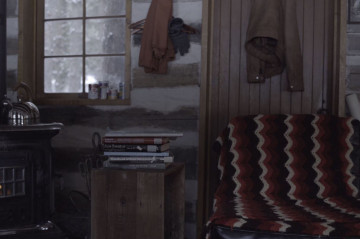 Papaya Rocks Film Festival
Papaya Rocks Film FestivalPeople
Sophie Wang, the director of “Signal”: The film shouldn’t stay stagnant
- In Historic First, Researchers Public Black Hole Photo
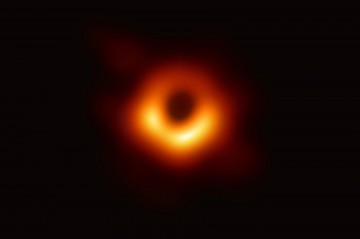
News
In Historic First, Researchers Public Black Hole Photo
- "Smog Wars": The Smell of Winter
Trends
"Smog Wars": The Smell of Winter
discover playlists
-
Music Stories PYD 2020
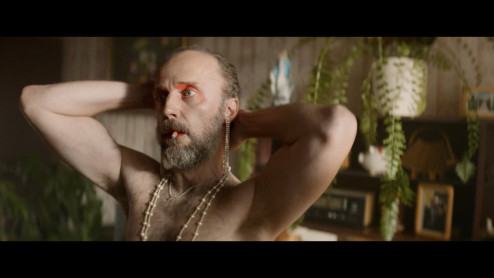 02
02Music Stories PYD 2020
-
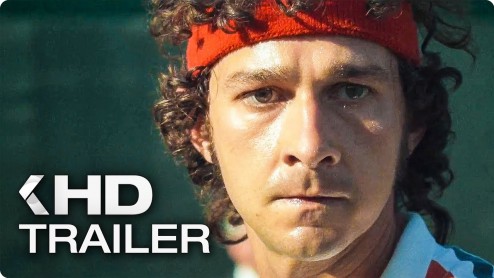 05
05 -
Papaya Young Directors 6 #pydmastertalks
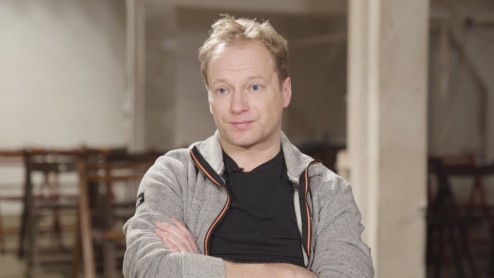 16
16Papaya Young Directors 6 #pydmastertalks
-
Branded Stories PYD 2020
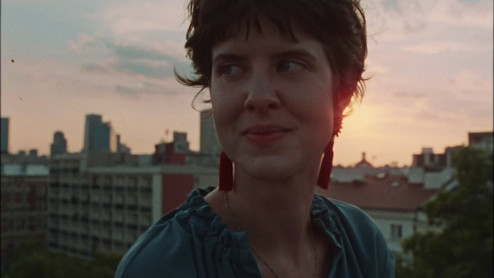 03
03Branded Stories PYD 2020
